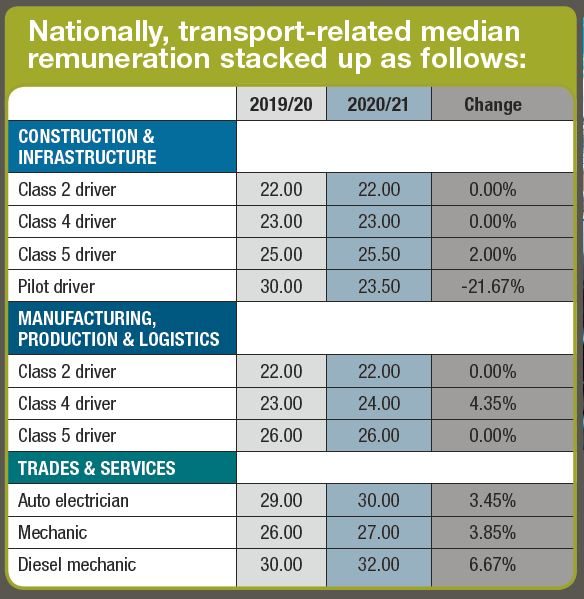WHAT‘S MY RATE REPORT
The annual OneStaff 2021 What‘s My Rate? New Zealand Industrial and Trades Wage Report reveals attitudes among waged industrial-sector workers on sick leave, mental health, and earnings.
For the third consecutive year, the industrial sector specialist and staffing solutions provider, OneStaff, has sought trends in the country‘s core industrial sectors: commercial and hospitality, construction and infrastructure, engineering, manufacturing, production and logistics, and trades and services.
More than 6000 bluecollar workers participated in the survey, which gauges work attitudes, experiences, and remuneration, creating a cross-section of demographics that cover a broad range of roles from entry-level positions to highly technical skills.
Covid-19 caused a lot of disruption in 2020. The 2020/21 report shows wage stagnation, limited people movement and a slight backsliding in gender disparities compared with the two previous reviews.
Happiness decreased almost universally, with a corresponding increase in willingness to resign. For the first time, the researchers asked questions about health, wellbeing, and trust in others. It was interesting to note that trust decreased with age, and women were more trusting than men.
Perhaps the biggest red flag in this report concerns sick leave, with more than 70% of respondents indicating they either didn‘t know if they would, or already knew they would not, take time off if they felt ill. The report suggests Kiwis aren‘t just working too hard but are working too hard potentially at the expense of themselves, their colleagues and customers.
“The hesitancy to take sick leave was quite surprising, especially as there‘s been so much public health messaging around staying home when unwell. However, the reasons cited for not taking sick leave were due to staffing shortages and heavy workloads, which shows that Kiwi workers are very dedicated to the success of their workplaces and to their colleagues,” said Jonathan Ives, OneStaff CEO.
“From a business-owner perspective, these results show that it‘s really important to have some contingency planning in place for staff leave and to make sure you can provide cover for vital jobs to keep your operations going.”
The three largest workplace factors that impacted people‘s mental health were: bad relationships at work (37%), too many hours at work (29%), and respondents‘ immediate bosses or managers (25%).
“When relationships turn sour, they top the list of mental-health impacts. For employers, this means that greater care should be taken to discover, mediate and deal with poor relationships between staff to ensure they don‘t have wider negative consequences. For employees, especially managers, putting effort into your work relationships will pay dividends in your own and your team‘s happiness,” says Ives.
More than half of all Kiwis egularly work overtime, but less than a third are compensated for their extra hours. Job satisfaction and earning more money are intrinsically linked the more satisfied a worker, the more likely they are to attract a higher wage.
Across sectors, Northland continues to offer the highest average wage in the country at $27 per hour, primarily due to the strong on-site engineering sector in Northland. Auckland and Christchurch remained stationary at $25 per hour. Wellington and the West Coast showed stronger-than-average wage growth, bringing them both to $26 per hour.






